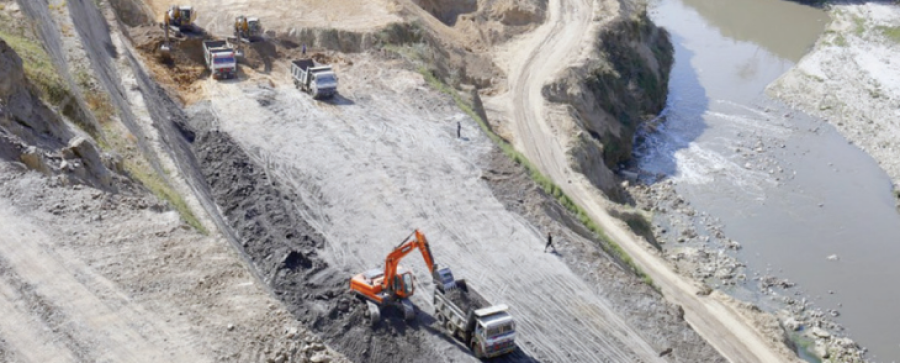National
Army ignores House panel’s directive, forges deal for expressway
Bypassing the directives of the House committees is an act of defying the sovereign entity, experts say.
Binod Ghimire
Ignoring the directive from the Public Accounts Committee of Parliament to scrap the bidding process, the Nepal Army on Friday sealed a deal for the construction of tunnels and bridges along the Kathmandu-Tarai expressway.
The House committee on April 1 had directed the Army, through the Ministry of Defence, to scrap the bidding process after its study showed noncompliance of the procurement law in the pre-qualification process for contractor selection for the second phase of the project. With no initiation from the ministry to direct the national defence force, the House committee on April 21 had sought justification for the delay from the ministry.
As the ministry didn’t respond, the Public Accounts Committee had directed the Army to scrap the process and start the new one. On May 5, the Army wrote to the committee requesting to review the directive, saying that it had followed the due process and that scrapping the bid that was already underway would delay the project as well as increase its cost.
The Army had selected only Poly Changda Engineering Company, Guangzhou China, among the 22 bidders that had applied in the global bidding process. The House committee said it was against the Public Procurement Act-2007 which envisions more than one company to be shortlisted.
It had also pointed out a flaw of the Army using the terms of the international competitive bidding process to select the companies under the engineering procurement and construction model.
The international competitive bidding is undertaken for every project for which international construction companies are required while the engineering procurement and construction is a specific bidding process in which the project gives the authority and the needed funds to build the project within a stipulated time.
However, the Army, which is undertaking the construction of the national pride project, signed a deal with the Poly Changda for the construction.
“We have signed the agreement fulfilling all the legal process,” Brigadier General Santosh Ballave Poudyal, the Nepali Army spokesperson, told the Post. “The company will complete designing in six months and complete the construction in next three years.”
He added that along with the Poly Changda, the Army has signed an agreement with China State Construction Engineering Corp for the construction of the first phase of the tunnel and bridges.
The cost of construction for the first phase and second phase stand at Rs 15.61 billion and Rs 20.08 billion excluding value added tax and other contingency expenses.
The Army says it had to forge the deal as it had already issued a letter of intent to the construction company and scrapping the process could lead to legal complications.
“We had received the directive from the House committee by the time we were close to signing a deal with the construction company,” a senior Army official told the Post on condition of anonymity. “It was a catch-22 situation for us.”
He said scrapping the bidding process would mean further delay in the construction and increase in the expenditure.
A study conducted by the Asian Development Bank in 2008 had estimated a price tag of Rs56 billion for the project. The cost was revised to Rs96 billion in 2014. The detailed project report submitted to the government in 2015 projected a bill of Rs112 billion.
Due to recurring controversies and delays, the project’s original cost estimate of Rs56 billion has doubled to Rs112 billion in seven years, which means the price tag has been swelling by Rs8 billion annually after adjusting for inflation. The cost of the project, which originally was proposed as a component of the proposed international airport in Nijgadh, was later revised to Rs 213 billion, including contingency costs.
The Army had set August 2021 as a completion deadline for the project which has been extended to July 2024. In the last three and a half years since construction began, hardly 11.1 percent of the work has been completed, according to the Army.
The officials at the parliamentary committee say the Army defied the House panel’s directives.
“The Nepal Army signed a contract while its request for the review was pending with the committee,” Roj Nath Pandey, secretary at the committee, told the Post. “The committee will take the issue seriously.”
He said the amount that will be released to the construction company will be accounted as an arrear which can be recovered from the officials who “bypassed the directives”.
Experts on parliamentary affairs say the directives from the parliamentary committee’s aren’t legally binding; however, it is a moral duty of the government agencies to follow them.
“The parliamentary committees have the representation of the sovereign people which has authority to hold the government agencies accountable” Som Bahadur Thapa, former secretary at the Parliament Secretariat, told the Post. “Bypassing the directives of the House committees is an act of defiance towards the sovereign entity. However, there is no legal binding to follow their directives.”




 13.12°C Kathmandu
13.12°C Kathmandu














